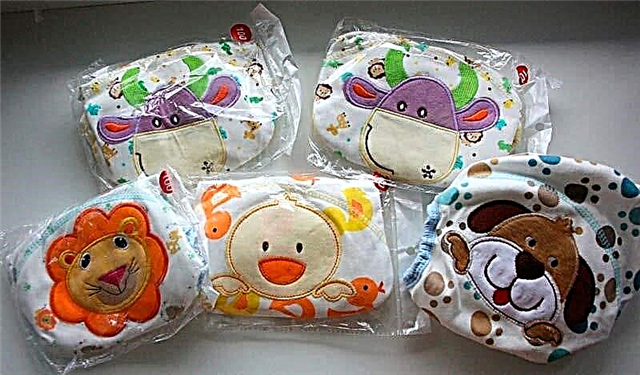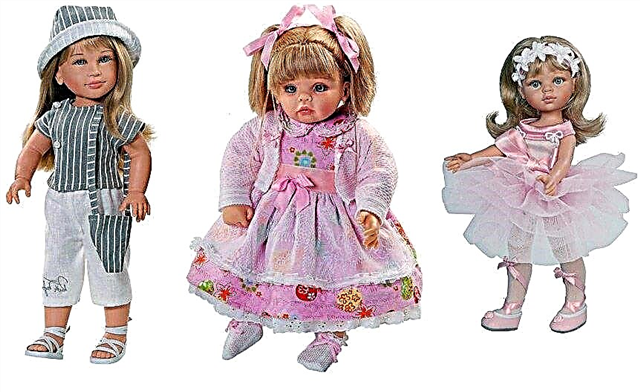Sometimes young parents are faced with the fact that the child refuses breast milk. It is necessary to understand the reasons for what is happening, to understand the factors and motives of such behavior.

Natural nutrition is very important for the health of the baby
Breastfeeding is a significant stage in the formation of the health and development of the baby. In some cases, milk refusal occurs at an early age. Here you need to consider that the behavior can be "false" and "true". In the first case, it is enough to eliminate the negative factors in order to establish the usual feeding. In the second, it is recommended to consult a pediatrician, since all cases are individual in nature.
Signs of true failure
True failure is a process caused by negative events. In order for it to start, it is enough for the baby to experience the stress associated with psycho-emotional communication with his mother.
Important! The child's psyche at an early age is extremely unstable, so any negativity can lead to the rejection of breast milk.
Signs of failure:
- the baby is calm and cheerful before feeding, begins to cry at the breast;
- as soon as he takes a breast, he starts to get nervous;
- the baby bends over, protests when milk is offered;
- crying stops in the arms of other relatives or in the crib;
- there is no reflex search for the nipple;
- anxiety appears in mom's arms, and crying begins;
- sobbing after crying is observed;
- the nipple was chosen as a replacement (falling asleep occurs only with it).
The natural way of feeding comes with a "scandal". After the bottle is offered, the child begins to eat with pleasure. In the event that 1 or more signs are observed, you should immediately consult a doctor for advice, since it is still very early to give up breast in two to three months.
What causes voluntary refusal
A voluntary desire to throw a breast can be based on the following:
- the child is one year old (age criteria);
- a dummy is often used;
- additionally, a bottle is used during the feeding process;
- flat nipple;
- too tight chest;
- lack / excess of milk.
The composition of milk can negatively affect the desire to suckle - too fatty or watery the child seems unpalatable. Violations of the rules of feeding or latching on to the breast can also lead to voluntary cessation of hepatitis B.
The chest is too tight
The baby may start to be capricious and refuse if he feels that the chest is full (becomes too tight). The milk pressure increases during sucking. The child is uncomfortable and may turn away or refuse to eat. It is recommended in this case to express a little milk in a container before the main feeding.
Flat nipple
Feeding may stop due to flat nipples. The kid has to use more effort, he gets tired, has difficulties. This leads to the abandonment of breastfeeding. Silicone pads can solve your problem.
Too fat milk
Another reason a baby prefers a bottle is milk that is too rich. The baby first actively sucks (the first milk is liquid, contains vitamins and minerals), but then begins to refuse. The main reason is that it becomes difficult for him to swallow liquid. Breast massage will help fix the problem.
The taste and smell have changed
If the usual taste and smell have changed, then this will become one of the main reasons for the protest from the baby. He may refuse right away or will show that he is uncomfortable, cry, bend over. It is recommended to adhere to a diet that does not contain spicy, peppercorns, onions, garlic or canned food.
Important! It is not only food in the diet that can negatively affect the taste and smell of milk. Sometimes these indicators are influenced by the emotional state of a nursing mother (special substances are produced that enter milk).
Violation of feeding technique
The application technique must be followed exactly to avoid problems. If everything goes right, then in the process of sucking the baby relaxes, his sleep becomes stronger. If the posture or other factors are uncomfortable, the newborn will abandon the hepatitis B.
The baby is giving up one breast
Sometimes the question arises of what to do when giving up one breast. The problem can arise with a mixed form of nutrition - the nipple seems less comfortable to the baby. There is a second rule that must be observed, in addition to choosing a certain type of feeding: you need to ensure that the volume of milk is the same. The child may refuse due to a lack or excess of nutrient fluid in one of the breasts.
How to overcome the problem
There are several ways to solve the problem:
- the child refuses breast milk and cries a lot - change the position of the body, sing a soothing song, stroke;
- take a shower or a warm bath (the smell of perfume or cream can cause a negative reaction);
- support the chest so that it does not hang down;
- massage before feeding so that milk passes more easily through the ducts.
You also need to ensure that the baby completely captures the nipple and areola with his mouth.

Harmony and good mood can solve the problem
Remove pacifiers and nipples
Frequent changes of pacifiers, nipples and regular feeding can cause baby negativity. It is recommended to completely exclude all additional devices in order to correct behavior and return the reflex desire to suck on the nipples.
Establish feeding techniques and hygiene
It is recommended to choose a position suitable for the child, in which he will be as comfortable as possible. Additionally, every evening you need to take a bath or shower (often optional). The use of creams or cosmetic oils for softening is excluded, since they may contain fragrances and other components that the baby will not like.
Adjust the nursing mother's menu
This is another method for solving the problem. Here you need to understand why the refusal occurred. If during this period new foods were introduced into the diet, then it is best to abandon them and look at the reaction.
If the child refuses breast milk, and he is only the second or third month, measures should be taken to restore hepatitis B. In the event that it is possible, it is recommended to refuse to feed the mixture. You can rub the nipples a little before applying to soften them. In difficult situations, it is better to consult a doctor, he will tell you why and how to return to natural feeding in each case.



